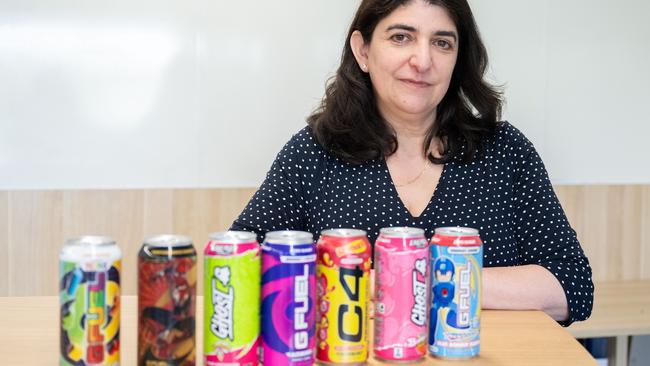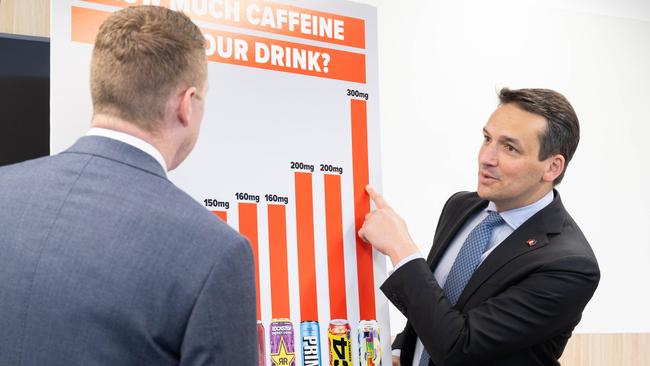SA Health crackdown on prohibited drinks with high levels of caffeine
An SA Health blitz on heavily caffeinated drinks found one with nearly double the amount of caffeine allowed – or three shots of coffee.
SA News
Don't miss out on the headlines from SA News. Followed categories will be added to My News.
Schoolchildren studying for end of year exams are consuming prohibited energy drinks with dangerous levels of caffeine, as the government stepped in to warn students against harmful side effects.
SA Health have been cracking down on the sale of heavily caffeinated drinks with officials issuing notices to businesses selling non-compliant products.
SA Health executive director of health protection and regulation, Chris Lease, said “appropriate action” would be taken with retailers who sell non-compliant products.
The most caffeinated drink found in the SA Health blitz was labelled G Fuel Tetris Blast and contained 300 milligrams of caffeine in a 473ml can – about nine times the amount of caffeine found in a standard can of Coca-Cola or three shots of coffee.
This is nearly double the amount of caffeine allowed under national food standards of 320 milligrams of caffeine per litre.
Other energy drinks found that exceeded regulations included one labelled C4 Performance Energy and another called Ghost Energy Drink, both containing 200mg of caffeine per 473ml can.

“I encourage all energy drink stockists to check their shelves, as some energy drinks from overseas look very similar to energy drinks that meet the Australian standards,” Mr Lease said.
And as students at Woodville High School prepare for their exams, principal Anna Mirasgentis sent out a warning to students.
“There are many positive ways to deal with stress and time pressures throughout this time, but we do not recommend energy drinks as one of them,” Ms Mirasgentis said.
And for many children, this represents more than three times the daily recommended caffeine intake, UniSA nutrition and food sciences director Dr Evangeline Mantzioris said.
The recommended maximum daily intake of caffeine for teenagers is three milligrams per kilogram of body weight.
“The impact of caffeine on children and young people under 18 is more dire than with adults,” Dr Mantzioris said.
She said the effects of excessive caffeine can be serious with symptoms such as heart palpitations and insomnia.
Dr Mantzioris advocated for plain packaging or warning signs on heavily caffeinated drinks.
And the issue is made worse as the drinks are “very clearly marketed towards young people”.

And with some containers depicting cartoon characters, Education Minister Blair Boyer said.
“We know in stressful times its very easy to turn to things like heavily caffeinated drinks in the belief it might get you through that exam period,” Mr Boyer said.
“But my message to those South Australians who are about to undertake their exams is drinking some of these heavily caffeinated drinks … is not a way to perform well in your exams.”
He said students should “put down the energy drinks and pick up the pen” when preparing for exams.




